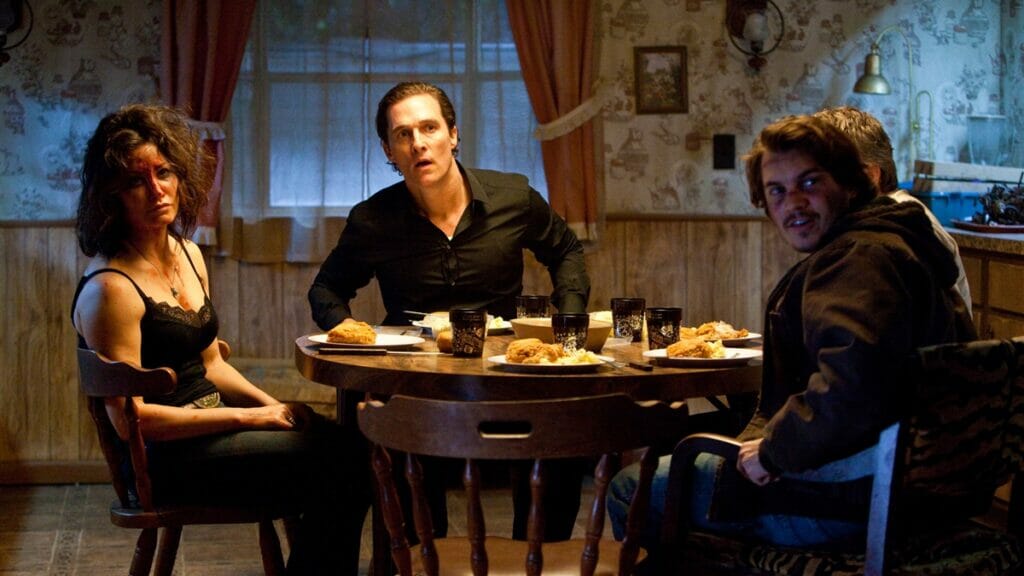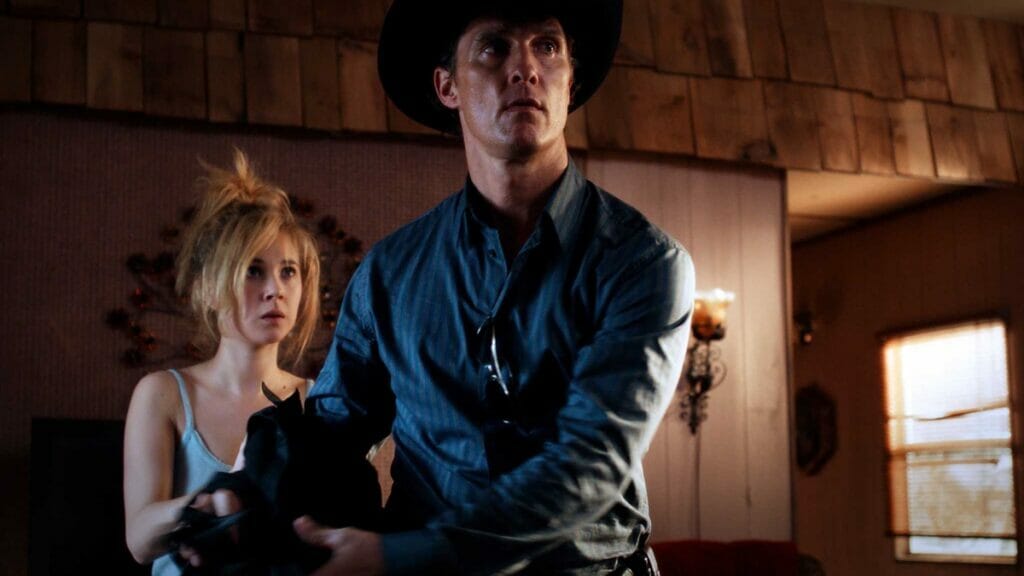Friedkin at his most unsparing and cruel delivers a powerful late-career film that might be too much for some to stomach.

Every month, The Spool chooses to highlight a filmmaker whose works have made a distinct mark on the cinematic landscape.
The funny thing about William Friedkin is that if you ask six people what their favorite Friedkin film is, you’ll get six different answers. These hot and cold responses marked Friedkin’s career overall, one that, for all its faults and stumbles, was never predictable or boring. He had no trademark and refused to be pinned down.
This piece was written during the 2023 SAG-AFTRA strike. Without the labor of the actors currently on strike, the works being covered here wouldn’t exist.
Upon the news of the passing of William Friedkin, every headline reporting on the news focused on two films. It’s not surprising that the media spent so much time talking about The French Connection and The Exorcist, two bona fide masterpieces that paved the way for a new era of American filmmaking. What was disappointing was this seeming willingness to reduce a cinematic legend’s legacy to a burst of time in the early 1970s, thus dismissing the five decades that followed as either negligible or outright unworthy of interest.
The admitted erraticism of Friedkin’s career had its low points as well as some impactful controversies. Still, it also continued to push buttons and delve into grimy places well beyond the time most labeled his prime. The penultimate Friedkin film exemplifies his sharpest qualities, the work of a man who always found ways to tear away the façade of justice and decorum to reveal the glorious rot beneath.

Based on the play by Tracy Letts, 2011’s Killer Joe is, to put it bluntly, pure filth. The Joe of the title is a police detective who makes big money on the side as a contract killer. Played by a pre-renaissance Matthew McConaughey, the idiot Smith family hires him to kill their family’s matriarch so they can claim her life insurance policy. In lieu of a cash retainer, Joe selects Dotty, the naïve youngest Smith daughter (Juno Temple), with whom he is instantly obsessed. If the family doesn’t pay up, Joe will make their lives a living hell.
It’s rare to see a film have such full-throated disdain for its entire ensemble of characters. Friedkin and Letts clearly hate every moment of the Smith family, except for perhaps Dotty, and even she is viewed more with pity than empathy. There’s nothing redeemable with this lot, so thoroughly nasty and selfish are they. The only flicks of sympathy come through the sheer force of Joe’s own evil, which eclipses theirs not only in intent but pure efficiency. If goodness even exists, Friedkin has no plans to acknowledge it. Such disdain is rare, even in the grittiest indie films, which usually throw a drop of familiar humanity toward the audience. Joe is a true monster, a corrupt lawman with no qualms about committing heinous acts, but at least he has initiative.
The penultimate Friedkin film exemplifies his sharpest qualities, the work of a man who always found ways to tear away the façade of justice and decorum to reveal the glorious rot beneath.
The plan, of course, falls apart almost immediately, and what follows is a cavalcade of absolute jackassery. The Smiths are buffoons who seem to stumble through life like the comedic side characters in a bad Coen brothers rip-off. Everyone is constantly on edge, except for Joe, who McConaughey plays with a steely calm that feels like the gross underbelly of his rom-com characters. When he snaps, it’s terrifying and makes you wonder how the hell this actor was ever seen as adorable.
It all boils up to the most infamous scene in the film: the rape by fried chicken. De Sade by way of the Colonel’s seven secret spices. Joe confronts the Smiths, particularly Sharla (a never-better Gina Gershon), who has tried to cheat the family out of money. After beating and choking her, he forces her to simulate oral sex on a fried chicken drumstick. Friedkin is unflinching, cruel to the point of near-parody. Friedkin will always be defined by The French Connection and its portrayal of an amoral cop, but Killer Joe is sadistic well beyond Popeye Doyle’s code. One could call it a descent into hell, but every character here was already highly familiar with the searing flames of the underworld.

It’s easy to ding Killer Joe for its broad strokes in depicting a poor Southern family devoid of tact and self-awareness. In lesser hands, it could have been The Beverly Hillbillies with a body count. It’s not as though Friedkin or Letts deny the Smiths the decency of depth, but more a reminder that even the worst people tend to have more dimensions than two. Yet there’s no unwieldy explanation for their personalities, no cycle of monologues to offer sympathetic backstories. Some people just suck. Yet, surely they’re as deserving of cinematic attention as anyone else?
Evil is tough to portray in art, largely because the most enjoyable versions of it are disconnected from the reality of malice in practice. True evil is mundane, and amping up the camp value risks diluting that which we should fear. Friedkin doesn’t seek subtleties in Killer Joe, nor its nastiness, but not to make it giddy for the voyeurs on the other side of the screen. It should twist our stomachs to watch an evil person enjoy themselves in acts of total degradation, and it does whenever McConaughey goes into action or the Smiths trip into murder. That doesn’t make it any less thrilling to watch, of course, but it is a reminder that humans feel disgust for a reason.